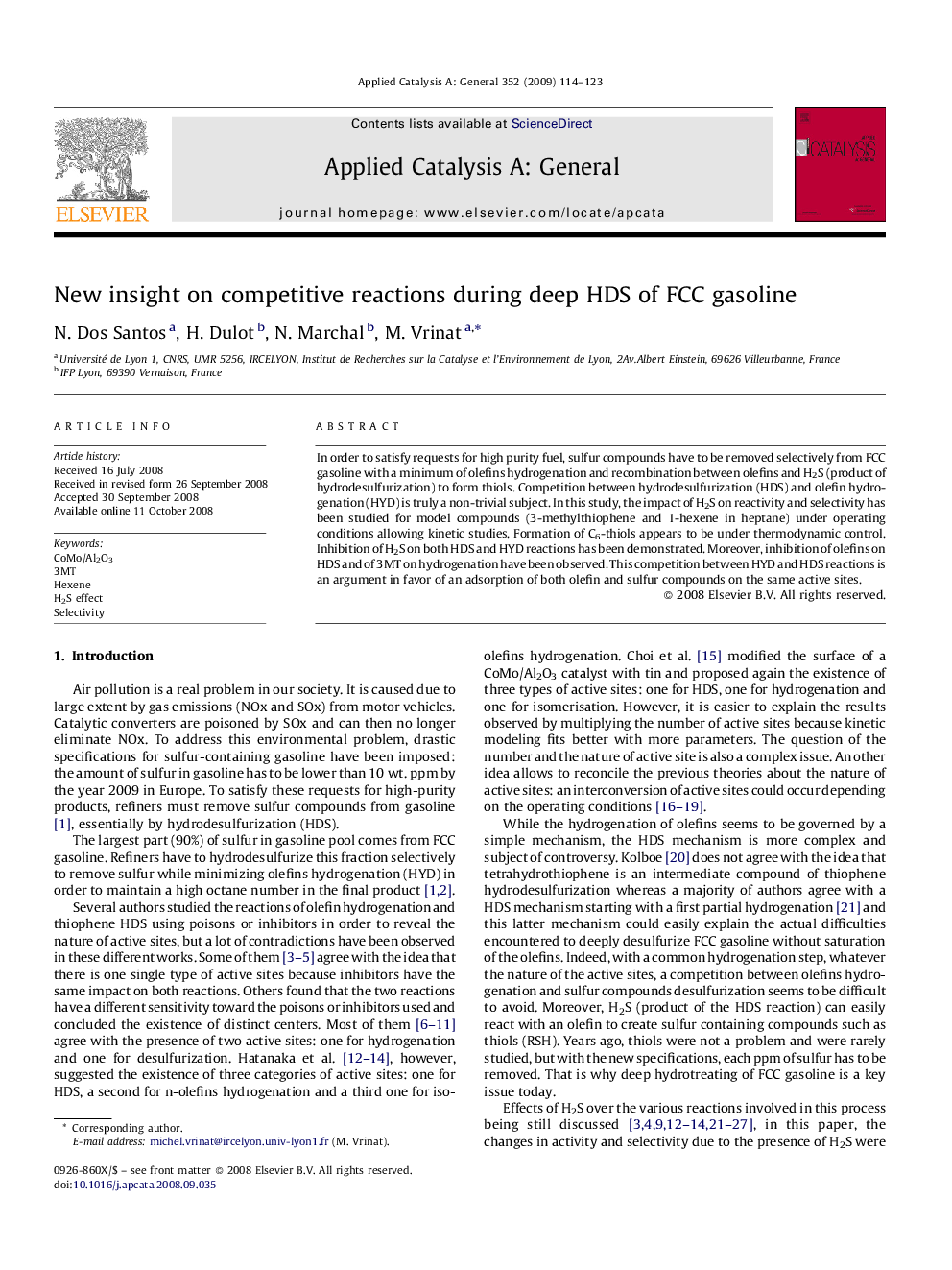| Article ID | Journal | Published Year | Pages | File Type |
|---|---|---|---|---|
| 43160 | Applied Catalysis A: General | 2009 | 10 Pages |
In order to satisfy requests for high purity fuel, sulfur compounds have to be removed selectively from FCC gasoline with a minimum of olefins hydrogenation and recombination between olefins and H2S (product of hydrodesulfurization) to form thiols. Competition between hydrodesulfurization (HDS) and olefin hydrogenation (HYD) is truly a non-trivial subject. In this study, the impact of H2S on reactivity and selectivity has been studied for model compounds (3-methylthiophene and 1-hexene in heptane) under operating conditions allowing kinetic studies. Formation of C6-thiols appears to be under thermodynamic control. Inhibition of H2S on both HDS and HYD reactions has been demonstrated. Moreover, inhibition of olefins on HDS and of 3MT on hydrogenation have been observed. This competition between HYD and HDS reactions is an argument in favor of an adsorption of both olefin and sulfur compounds on the same active sites.
Graphical abstractIn this study, impact of H2S on reactivity and selectivity has been studied for 3-methylthiophene and 1-hexene in heptane. Formation of C6-thiols appears to be under thermodynamic control. Inhibition of H2S on HDS and HYD reactions has been shown. Moreover, inhibition action of olefins on HDS and of 3MT on hydrogenation have been observed.Figure optionsDownload full-size imageDownload as PowerPoint slide
